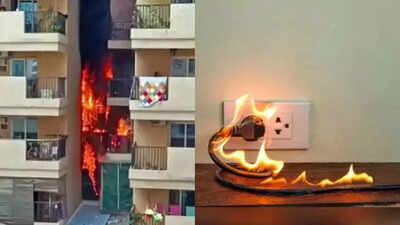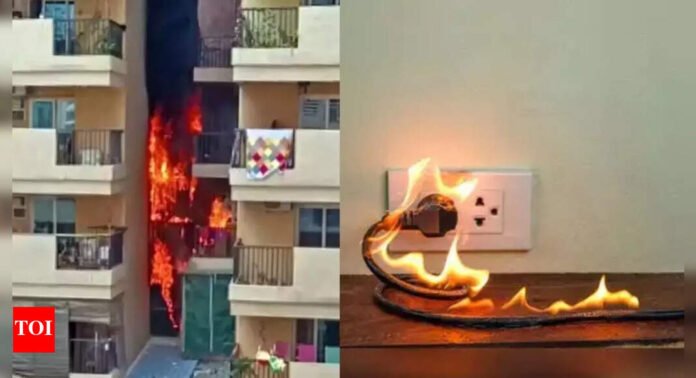Summer Fire Safety at Home: Simple Tips to Stay Safe

Summer brings a sharp rise in household fires. These fires are often caused by electrical issues. As we use more cooling devices, our electrical systems face immense pressure. This can lead to overheating and fires. Many people are unaware of these risks. Simple steps can prevent tragic losses during the summer heat.
Electrical fires are preventable. Regular checks and safe practices can protect your home and family. Fire safety isn’t just for summer; it’s a year-round necessity.
Why Are House Fires More Common in Summer?
In hot weather, homes rely heavily on appliances like air conditioners and fans. Older homes may not have electrical systems designed to handle this load. This can result in hot wires and short circuits that cause fires.
Even simple actions like plugging in extra devices can be hazardous. Old wiring is a frequent cause of summer fires. When new appliances are added to old homes without upgrading the power system, the insulation can melt and cause fires.
Preventive Tips to Avoid Fire Outbreaks
- Replace Old Wiring
If your home is older than 15-20 years, hire a licensed electrician to replace the wiring. This ensures it can safely meet modern power needs.
- Install Correct Safety Devices
Miniature Circuit Breakers (MCBs) are crucial for cutting off the power supply during overloads. Ensure your MCB suits your power load. An incorrect MCB won’t protect you in an emergency.
- Know Your Main Switch
In emergencies, quickly turning off the electricity can prevent a disaster. Teach all household members where the main switch is located.
- Keep the Kitchen Safe
Many summer fires start in the kitchen. Keep appliances away from gas cylinders or pipes. A short circuit can easily cause an explosion. Keep a small fire extinguisher nearby and ensure proper ventilation.
Common Mistakes to Avoid Electrical Fires
Plugging too many devices into a single socket can cause overheating. Avoid multi-plug adapters unless necessary.
Fix exposed or broken wires immediately. They can cause fires if they touch flammable materials.
Avoid joining wires of different metals. This creates poor joints and increases fire risks.
Why Home EV Charging Can Be Dangerous
Charging EVs at home using regular wall sockets is dangerous. Electric vehicle charging requires a specialized, high-capacity circuit. Ordinary plugs are not designed to handle high current, leading to overheating and fires.
Safety Advice for Summers
- Never leave cooking unattended, especially when using oil or gas.
- Don’t smoke near flammable areas or indoors.
- Avoid running wires under carpets or doors.
- Service appliances frequently, especially heavy-duty items.
- Use voltage stabilizers or surge protectors.
- Replace damaged plugs and cords immediately.
Electrical Meter Box Safety
- Install meter boxes in well-ventilated, fire-resistant enclosures.
- Avoid installing meters near emergency exits.
- Keep flammable items away from meter boxes.
Important Tips
Despite all precautions, accidents can happen. Be prepared:
- Train all household members on fire response.
- Ensure fire escape routes are clear at all times.
- Do not lock terrace or fire door gates.
- Install smoke detectors for early warning.



